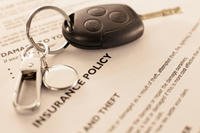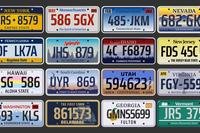Like death and taxes, auto insurance is one of those things we just can't avoid — at least not legally. Nearly every state requires motorists to carry at least liability insurance, and in most cases, you'll want more. Servicemembers have special insurance needs, ranging from vehicles that must be stored while the owner is away on active duty, to vehicles originally registered and insured in one state and then taken to another state for service orders. Be sure you understand how to stay within the law and get the best coverage when you're insuring your vehicle.
1.) Plan when you buy. Think about insurance before you choose your next vehicle. You will save right out of the gate if you opt for a car without a lot of bells and whistles. Also consider which cars are stolen most frequently. Check a recent list -- the insurers do, and they charge more to cover those models.
2.) Tune up your credit score. Pay bills on time and pay overdue debts. In addition to driving record, use of vehicle, area of residence and other factors, insurers do take credit scores into account when determining rates.
3.) Compare rates. Many servicemembers swear by military-oriented financial companies for the best rates. Definitely check them out, but also do your homework by checking rates for your vehicle with other companies to be sure you get the best benefit for the best price.
4.)Know special military rules. Members of the military often have special rules when it comes to car insurance. Many states allow servicemembers to continue registration and insurance coverage from their home states, no matter where they are stationed. But if a servicemember or spouse is employed in the new state, the vehicle might have to be registered and insured there. Check state rules to be sure.
5.)Check into deployment options. If you're going to be deployed, ask your insurance agent how you should handle your auto insurance coverage. Many insurers will now waive penalties if you choose to drop coverage while you serve your country. Others will encourage that you retain a low level of coverage on a stored or inactive vehicle.
6.) Know insurance terms. Before you can complete the mission of choosing the right insurance, you have to speak the language. Key terminology includes:
- Liability coverage: Covers damage to property or human injury if you are at fault. It also pays court costs.
- Collision coverage: Insures your own vehicle against damage from an accident. Usually not cost-effective on older, less expensive cars.
- Comprehensive coverage: Covers damage to your vehicle from something other than an accident. Again, owners of older, less expensive cars usually drop this coverage.
- Medical coverage: Pays medical expenses from an accident. Compare with what is available under your health insurance policy. If you do not have health insurance, definitely opt for appropriate medical insurance on your auto policy.
- Uninsured/underinsured motorist: Pays for damage to your car if you are in an accident caused by someone who does not have insurance (or who does not have enough insurance).
7.) Consider gap coverage for new cars: Gap insurance covers the "gap" between the value of your car and the amount you owe on a car loan. It can give you peace of mind when your vehicle has depreciated in value, but you have not paid the loan down yet. In this situation, if you totaled your car, an insurance reimbursement might be less than you owe the bank. Remove this coverage when the loan falls below the vehicle?s value.
8.)Think carefully about other coverage: You can add policy coverage for rental car or roadside assistance (tow or help for flat tires or other problems). Do not duplicate benefits, such as roadside assistance covered by an auto club membership.
9.)Choose the right deductible: The deductible is the cost you must pay for repairs before your insurer pays its portion. Choose the highest deductible you could afford in the event of an accident. The higher the deductible, the lower the premium. Then put whatever money saved by opting for a higher deductible cost in an interest-earning account. By choosing a deductible of $500 instead of $200 on collision coverage, a car owner can save up to 30 percent on premiums.
10.) Discounts: Ask about discounts. You might be eligible for discounts because of your age (such as over 50), driver training, car features (air bags, alarm, antilock brakes), or having more than one policy with the insurer.
Insurance may be a necessary evil, but the right policy will keep you law-abiding, protect your assets from loss in the event of an accident, offer smart financial choices -- and provide peace of mind.
Take the first step. Compare auto insurance rates from mulitple companies in minutes.
For more auto insurance information and tips, visit Military.com Insurance channel.










